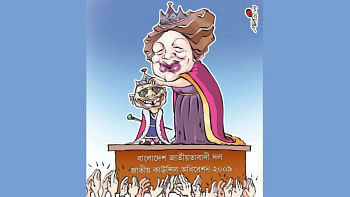Brac, EU launch SHIKHA Project to combat gender-based violence

Brac, an international development organisation in Bangladesh, and the European Union recently launched an initiative, titled the "SHIKHA Project," at a function held at the Renaissance Hotel in Dhaka.
The initiative aims to create safer public and private spaces by strengthening prevention and response mechanisms against gender-based violence, bullying, and sexual harassment.
Michael Miller, ambassador and head of delegation of the European Union to Bangladesh, attended the programme as the chief guest, according to a press release.
In his address, Miller emphasised that building a new Bangladesh requires the active participation of women across all sectors, from education to the workforce, with a focus on shared ownership and decision-making.
He highlighted that the European Union views gender-based violence not merely as a women's issue but as a broader human rights, development, and societal challenge.

Addressing this issue, he stressed, requires collective action from all.
Asif Saleh, executive director of Brac, stressed the urgent need to prevent the regression of women's progress in Bangladesh, calling for collective action beyond feminist organisations.
He urged policymakers, private sector leaders, academics, students, and activists to take ownership of the issue and work together to drive change.
Highlighting the role of leadership, he emphasised that true cultural shifts happen only when those at the top personally recognise the importance of gender equality.
Implemented by Brac, in partnership with the Bangladesh Legal Aid and Services Trust, and Young Power in Social Action, the SHIKHA project will work to foster safer environments across workplaces, educational institutions, public spaces, and digital platforms.
The initiative will advocate for legislative reforms, enhance enforcement mechanisms, and raise awareness to challenge harmful social norms and gender stereotypes.
Over the next four years, the project will be implemented across key urban districts, including Dhaka, Gazipur, Chattogram, Barishal, Narayanganj, and Rajshahi, with a focus on achieving sustainable and systemic change.
Omar Md Imrul Mohsin, inspector general (additional secretary) of the Department of Inspection for Factories and Establishments; Shams Mahmud and Inamul Haq Khan, members of the support committee at the Bangladesh Garments Manufacturers and Exporters Associaiton; and Iqbal Hossain Raju, vice-president of the Bangladesh Road Transport Owners Association, were also present.

 For all latest news, follow The Daily Star's Google News channel.
For all latest news, follow The Daily Star's Google News channel. 



Comments